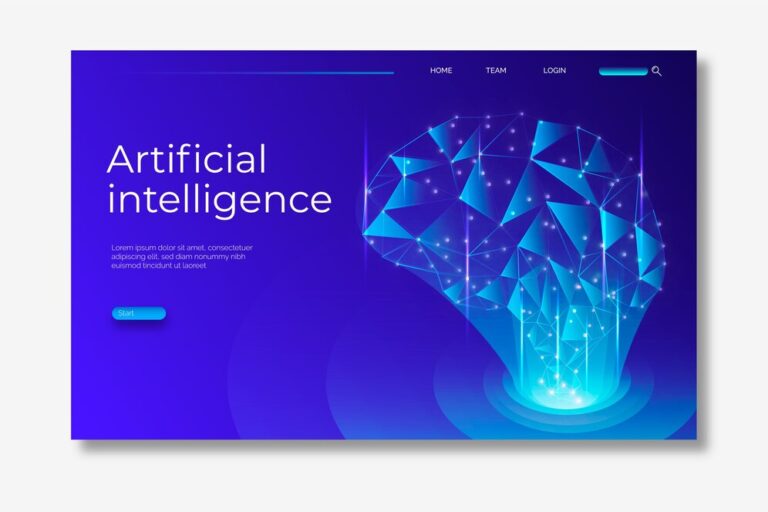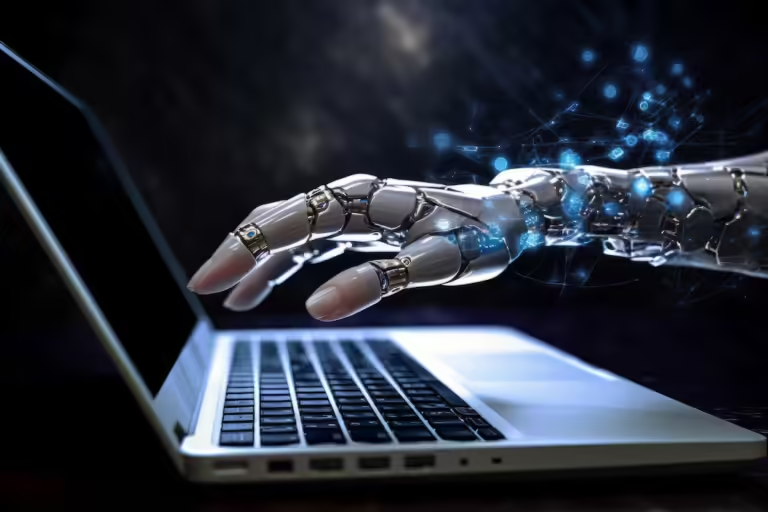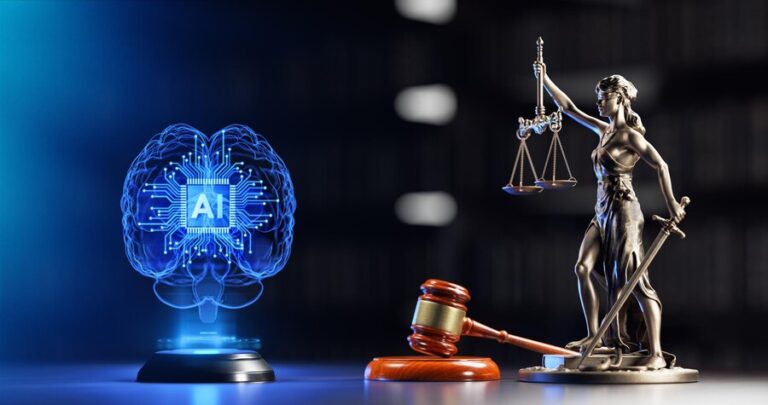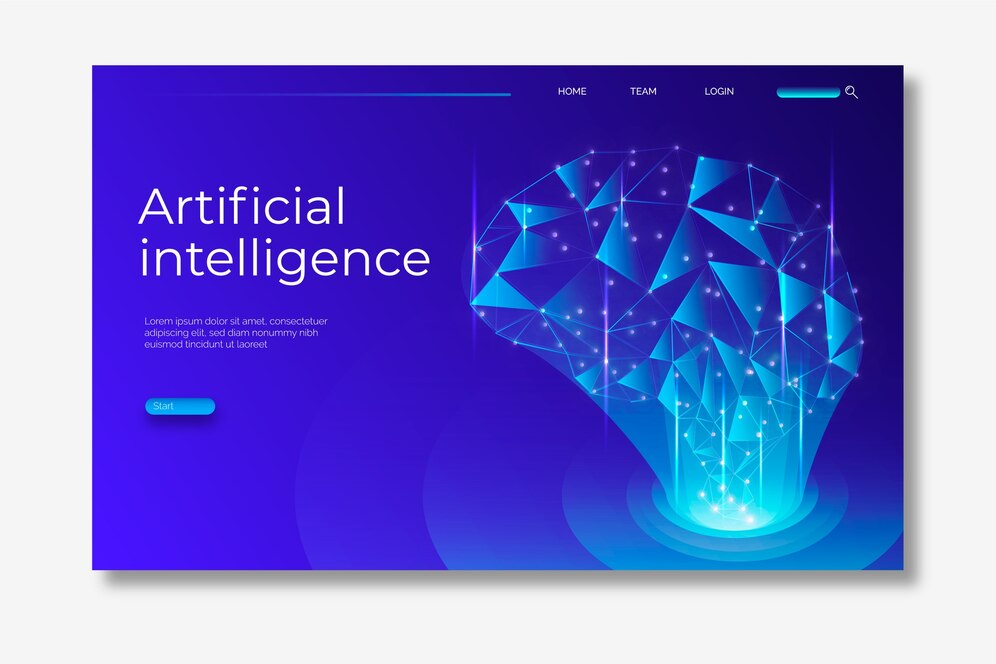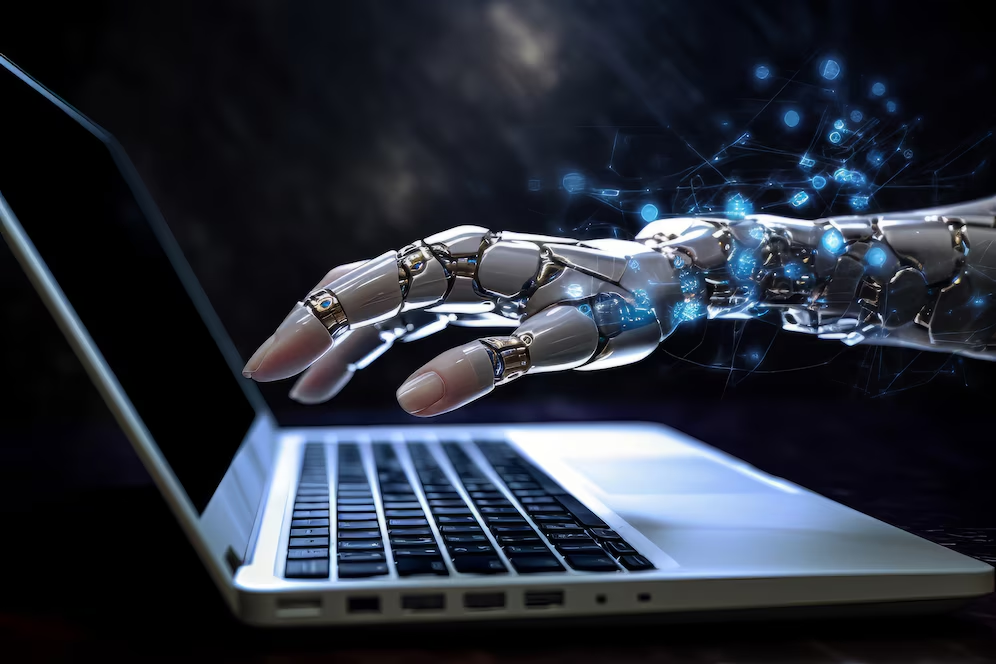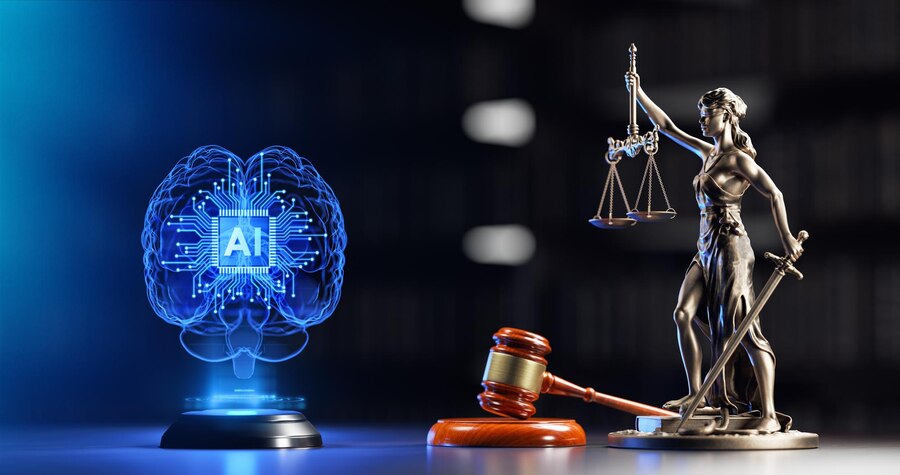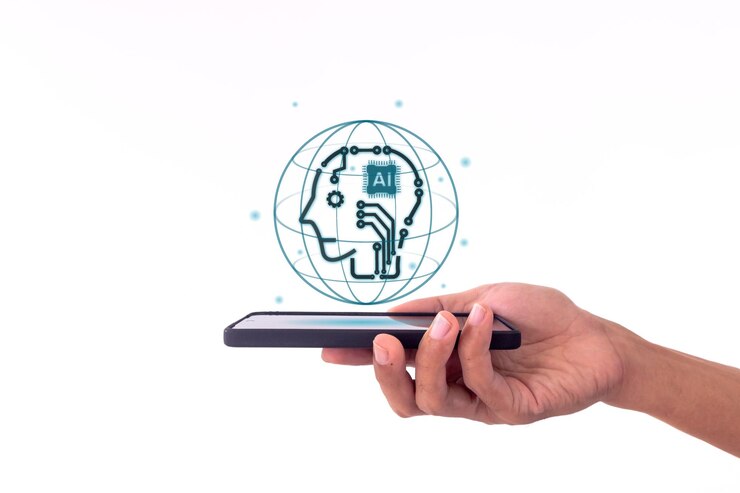Artificial Intelligence (AI) is no longer a futuristic concept; it’s a driving force behind the Fourth Industrial Revolution. By integrating AI with technologies like Big Data, sensors, the Internet of Things (IoT), cloud computing, Machine Learning, and AR/VR, businesses can gain a significant competitive edge. This article explores how AI is reshaping industries, offering unique benefits, and why investing in AI can be a game-changer in 2023 and beyond.
Understanding Artificial Intelligence: A Brief Overview
AI has evolved since the 1950s, becoming a critical tool in various industries. Popular culture often depicts AI as sentient robots or complex networks like those in the movies “Terminator” or “The Matrix.” In reality, AI encompasses any machine or program that performs tasks typically requiring human intelligence. This includes strategic planning, learning, problem-solving, and real-time object manipulation, making AI an invaluable asset across multiple sectors.
The Advantages of Artificial Intelligence in Business
- Minimizing Human Error
While human interaction is essential, humans are prone to errors and inconsistencies. AI systems, programmed with specific algorithms, can execute tasks with a precision that significantly reduces the risk of human error. This capability is particularly valuable in industries where accuracy is paramount, such as healthcare and finance. For example, in medical diagnostics, AI can analyze patient data more quickly and accurately than human doctors, identifying potential health issues before they become critical.
- 24/7 Operation
Unlike humans, AI systems do not require rest, making them ideal for tasks that demand constant attention. This capability ensures uninterrupted operations in critical sectors like healthcare, manufacturing, and customer support, where continuous monitoring and immediate responses are crucial. In customer service, AI-powered chatbots can handle inquiries round the clock, providing instant responses and improving customer satisfaction.
- Automating Repetitive Tasks
Repetitive tasks often lead to employee burnout and reduced productivity. AI excels in handling routine tasks, such as data entry, document verification, and automated responses, freeing employees to focus on more complex and creative aspects of their jobs. This not only increases efficiency but also improves employee morale, as workers can engage in more meaningful work.
- Rapid Decision-Making
AI systems can analyze vast amounts of data and make decisions in real time, far surpassing human capabilities. This speed and efficiency are critical in fast-paced environments, such as stock trading, emergency response, and supply chain management, where timely decisions can have significant impacts. For example, AI algorithms in the financial sector can analyze market trends and execute trades within milliseconds, maximizing profits and minimizing risks.
- Operating in Hazardous Environments
AI-powered robots can perform tasks in dangerous conditions, such as deep-sea exploration, space missions, and nuclear facilities, where human presence would be risky. These robots are equipped to handle extreme conditions, ensuring safety and efficiency. In disaster response, AI drones can assess damage, locate survivors, and deliver aid in areas inaccessible to humans.
- Enhancing Customer Experience
AI enables businesses to provide personalized customer experiences by analyzing customer data and predicting preferences. AI-driven recommendation systems, such as those used by Netflix and Amazon, can suggest products and content tailored to individual tastes, increasing customer satisfaction and loyalty.
- Cost Reduction
By automating tasks and improving efficiency, AI helps businesses reduce operational costs. Automated systems can handle large volumes of work without the need for additional human resources, leading to significant cost savings. In manufacturing, AI-driven machines can operate with minimal supervision, reducing labor costs and increasing production speed.
Industries Benefiting from AI Integration
AI’s transformative power is evident in its application across various industries, each leveraging its capabilities to enhance efficiency, accuracy, and innovation.
- Healthcare
AI is revolutionizing healthcare, from robotic-assisted surgeries to AI-driven diagnostic tools. Companies like Cambio Health Care and Coala use AI to monitor patients’ physical and mental health, detect early signs of diseases, and manage chronic conditions. AI-powered diagnostic tools can analyze medical images, identify anomalies, and assist doctors in developing treatment plans, making healthcare more accessible and efficient.
- Telemedicine and Remote Monitoring: AI-powered platforms enable remote patient monitoring, allowing healthcare providers to track patients’ health from a distance. Wearable devices can collect real-time data on vital signs, alerting healthcare professionals to potential health issues before they escalate. This is particularly beneficial for managing chronic diseases such as diabetes and heart conditions, where continuous monitoring can prevent complications.
- Drug Discovery and Development: AI is accelerating the drug discovery process by analyzing vast datasets to identify potential drug candidates. AI algorithms can predict how different compounds will interact with biological targets, reducing the time and cost of bringing new drugs to market. This capability is crucial in the fight against emerging diseases, where rapid development of effective treatments is essential.
- Education
The shift to online learning, accelerated by the pandemic, has highlighted AI’s role in personalized education. AI can tailor learning experiences to individual needs, improving outcomes for students with different learning styles and abilities. Additionally, AI can assist in teaching students with disabilities, providing support that enhances their educational experience.

- Adaptive Learning Platforms: AI-powered adaptive learning platforms can adjust the pace and content of lessons based on students’ progress and comprehension. These platforms use data analytics to identify areas where students struggle, providing additional resources and support to help them succeed. This personalized approach fosters a more effective learning environment, catering to the unique needs of each student.
- Automated Grading and Feedback: AI can automate the grading process, providing instant feedback to students and reducing the workload for educators. Automated grading systems can assess assignments and exams, offering detailed feedback that helps students improve their understanding of the material. This allows teachers to focus on more interactive and engaging aspects of education, such as mentoring and hands-on projects.
- Marketing
AI is a game-changer in marketing, offering tools for data analysis, customer segmentation, and personalized advertising. AI-driven platforms can predict consumer behavior, optimize ad placements, and enhance customer engagement, making marketing efforts more targeted and effective. Companies can automate customer support, streamline sales processes, and improve customer satisfaction.
- Predictive Analytics: AI can analyze customer data to predict future behavior, enabling marketers to anticipate trends and tailor their strategies accordingly. By understanding customer preferences and buying patterns, businesses can create targeted marketing campaigns that resonate with their audience, increasing conversion rates and sales.
- Content Creation and Personalization: AI-powered tools can generate personalized content for marketing campaigns, such as emails, social media posts, and advertisements. These tools use natural language processing (NLP) to create engaging and relevant content that speaks directly to individual customers, enhancing brand loyalty and customer engagement.
- Banking and Finance
AI is transforming the banking and finance sector by automating tasks, reducing paperwork, and enhancing customer service. AI-powered chatbots can provide personalized financial advice, assist with transactions, and detect fraudulent activities. By analyzing vast datasets, AI can offer insights that help financial institutions make informed decisions and improve operational efficiency.
- Fraud Detection: AI algorithms can analyze transaction patterns to detect unusual activities that may indicate fraud. By monitoring real-time data, AI systems can identify and flag suspicious transactions, preventing financial losses and protecting customers’ accounts. This proactive approach enhances security and builds trust with customers.
- Credit Scoring: AI can improve the accuracy of credit scoring by analyzing a broader range of data points, including social media activity, online behavior, and payment history. This enables financial institutions to make more informed lending decisions, reducing the risk of defaults and expanding access to credit for underserved populations.
- Agriculture
AI is revolutionizing agriculture by optimizing crop management and enhancing productivity. AI-powered machines can monitor soil conditions, predict weather patterns, and manage pests, ensuring optimal crop yield. Drones equipped with AI can survey large fields, apply fertilizers, and detect issues early, minimizing losses and maximizing efficiency.

- Precision Farming: AI enables precision farming by providing real-time data on soil health, moisture levels, and crop conditions. Farmers can use this information to make informed decisions about irrigation, fertilization, and pest control, optimizing resource use and reducing environmental impact. Precision farming improves crop yields and sustainability, contributing to food security.
- Automated Harvesting: AI-powered robots can perform harvesting tasks with precision and efficiency, reducing the need for manual labor. These robots can identify ripe crops, pick them with care, and sort them based on quality, ensuring that only the best produce reaches the market. Automated harvesting increases productivity and reduces the risk of crop damage.
- Transportation
AI is at the forefront of developing autonomous vehicles, with companies like Waymo leading the way. AI systems in these vehicles analyze data from sensors, cameras, and GPS to navigate roads, ensuring safety and efficiency. Beyond self-driving cars, AI is also enhancing logistics and supply chain management, optimizing routes and reducing costs.
- Fleet Management: AI-powered fleet management systems can monitor the condition of vehicles, predict maintenance needs, and optimize routes to reduce fuel consumption and emissions. By analyzing real-time data, these systems can improve the efficiency and sustainability of transportation networks, reducing operational costs and environmental impact.
- Traffic Management: AI can analyze traffic patterns and adjust signal timings to reduce congestion and improve traffic flow. Intelligent traffic management systems use data from cameras, sensors, and connected vehicles to make real-time decisions, minimizing delays and enhancing road safety. This technology is crucial in urban areas, where traffic congestion is a major challenge.
- Gaming
AI is integral to modern gaming, creating immersive experiences and realistic simulations. AI-driven games can adapt to players’ actions, providing dynamic challenges and personalized experiences. Beyond entertainment, AI in gaming is used for training, education, and assessing skills in various fields.
- Non-Player Characters (NPCs): AI is used to create intelligent NPCs that can interact with players in realistic ways, enhancing the gaming experience. These NPCs can learn from players’ actions, adapt their behavior, and provide unique challenges, making each game session different and engaging.
- Game Development: AI can streamline the game development process by automating tasks such as level design, character animation, and quality assurance testing. AI tools can generate game content, test for bugs, and optimize performance, reducing development time and costs while improving the quality of the final product.
- Cybersecurity
With the increasing threat of cyberattacks, AI is essential for safeguarding digital assets. AI systems can monitor networks for unusual activities, detect potential threats, and respond to security breaches in real time. This proactive approach helps organizations protect sensitive information and maintain trust with their customers.
- Threat Detection and Response: AI-powered cybersecurity systems can identify and respond to threats faster than human analysts. By analyzing network traffic and user behavior, these systems can detect anomalies that may indicate a cyberattack, such as malware infections or unauthorized access attempts. AI can then take action to neutralize the threat, preventing data breaches and minimizing damage.
- Automated Security Audits: AI can conduct automated security audits to identify vulnerabilities in an organization’s infrastructure. By scanning systems for weaknesses, AI can provide recommendations for improving security and reducing the risk of cyberattacks. This helps organizations stay ahead of evolving threats and protect their digital assets.
- Space Exploration
AI is crucial in space exploration, enabling the analysis of vast amounts of data and the operation of autonomous vehicles. AI-powered rovers and probes can explore planets, gather data, and perform tasks without human intervention, advancing our understanding of the universe.

- Autonomous Navigation: AI enables space rovers and probes to navigate challenging terrain and make decisions independently. These autonomous systems can analyze environmental data, avoid obstacles, and select the best paths to achieve mission objectives. This capability is essential for exploring distant planets and moons, where real-time communication with Earth is not possible.
- Data Analysis: AI can process and analyze the vast amounts of data collected during space missions, identifying patterns and anomalies that may indicate the presence of valuable resources or signs of life. By automating data analysis, AI helps scientists make sense of complex datasets, accelerating discoveries and advancing our knowledge of the cosmos.
- Lifestyle and Smart Homes
AI is becoming a part of everyday life through smart home devices and personal assistants. AI can automate household tasks, manage energy consumption, and enhance security, making life more convenient and efficient. As AI technology continues to evolve, its integration into daily life will become even more seamless.
- Smart Home Automation: AI-powered smart home systems can control lighting, heating, and appliances, optimizing energy use and enhancing comfort. These systems can learn residents’ preferences and adjust settings automatically, creating a personalized living environment. AI can also integrate with home security systems, monitoring for intruders and alerting homeowners to potential threats.
- Virtual Assistants: AI-driven virtual assistants, such as Amazon’s Alexa and Google Assistant, can perform a wide range of tasks, from setting reminders and answering questions to playing music and controlling smart devices. These assistants use natural language processing to understand and respond to voice commands, making it easy for users to interact with technology.
Why Invest in AI in 2023?

The benefits of AI are clear, offering businesses the opportunity to improve efficiency, reduce costs, and enhance customer experiences. By investing in AI, companies can stay ahead of the competition, drive innovation, and create new opportunities for growth. The potential for AI to transform industries is immense, making it a valuable investment for the future.
- Driving Innovation: AI fosters innovation by enabling businesses to experiment with new ideas and approaches. AI-powered tools can analyze market trends, customer feedback, and competitive landscapes, providing insights that drive product development and business strategy. By leveraging AI, companies can stay at the forefront of their industries, introducing cutting-edge products and services that meet evolving customer needs.
- Improving Customer Engagement: AI enhances customer engagement by providing personalized experiences and real-time support. AI-powered chatbots and virtual assistants can handle customer inquiries, resolve issues, and provide recommendations, ensuring a seamless and satisfying experience. This level of engagement builds customer loyalty and drives repeat business.
- Enabling Scalability: AI allows businesses to scale their operations efficiently, handling increased workloads without compromising quality. AI systems can process large volumes of data, automate repetitive tasks, and make decisions at scale, enabling companies to grow and expand their operations. This scalability is essential for businesses looking to enter new markets and reach a broader audience.
- Enhancing Decision-Making: AI provides valuable insights that support data-driven decision-making. By analyzing data from various sources, AI can identify trends, predict outcomes, and recommend actions, helping businesses make informed decisions. This capability is crucial in dynamic and competitive industries, where quick and accurate decisions can make a significant difference.
Conclusion
Artificial Intelligence is not just a buzzword; it’s a catalyst for change in the Fourth Industrial Revolution. Its ability to analyze data, automate tasks, and make intelligent decisions makes it indispensable across various industries. As businesses continue to adopt AI, they will unlock new possibilities, improve their operations, and secure a competitive advantage. Investing in AI is not just about staying relevant; it’s about leading the way into the future.
As AI continues to evolve, its impact on industries and everyday life will only grow. Companies that embrace AI today will be well-positioned to thrive in the digital age, reaping the benefits of increased efficiency, innovation, and customer satisfaction. The future is bright for those who recognize the potential of AI and take proactive steps to harness its power.



